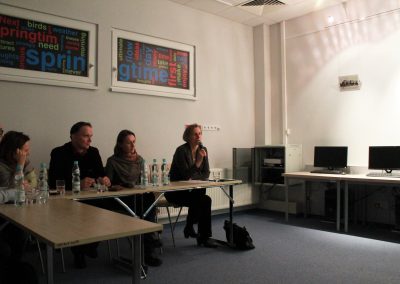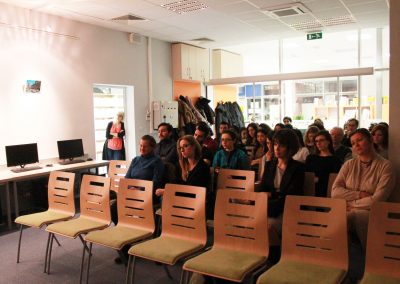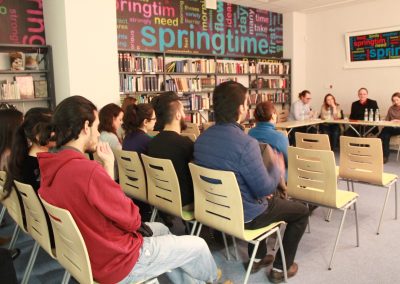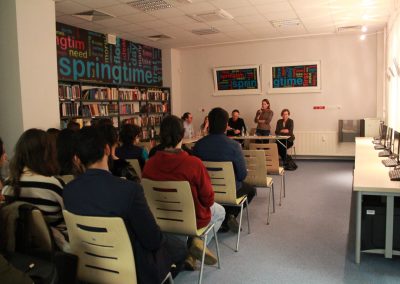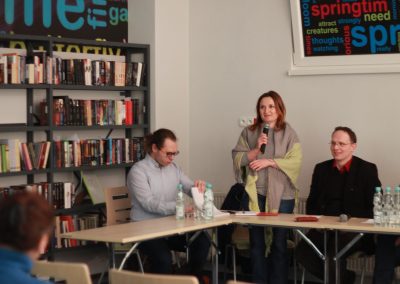On Wednesday we met in the Municipal Library Fil. 4 to participate in the debate entitled Gender ideology(ies): Man and woman – different by nature, inequal by society? We tried to find the answer to this question with our four guests: sociologists Borys Cymbrowski and Anna Czerner, philologist Katarzyna Molek-Kozakowska and biologist Elżbieta Pogoda.
We were aware that for most people the term gender is unfamiliar or even unfriendly, especially when someone is not a philologist or a social researcher, so we started with the basic questions: what gender is, how it exists in our respective fields of studies, and if there exists gender ideology. We can say that gender in general is about social consequences of being men, women or the others, because in the opinion of Elżbieta Pogoda even from a biological point of view there are more than only two sexes. And there is no evidence that one sex has an advantage over another.
In Polish media we encounter some false beliefs about the meaning of the word “gender”. But as Borys Cymbrowski mentioned it is a problem of confusion of nature with culture, because in the Polish language we have only one word (płeć) for gender and for sex. So some commentators confuse biological meaning with the cultural one. They accuse gender scholars of promoting a dangerous ideology which tries to convince people to choose their sex. As Anna Czerner said, the truth is that in the social sciences gender was a neutral category to analyse the relations between people in society, but unfortunately some institutions and politicians took one of the least popular topics in gender studies and used it as a basis to create and apply gender ideology as a political tool.
After that we focused mostly on language aspects within gender issues. Katarzyna Molek-Kozakowska indicated that for her it was easier to introduce herself in English than in Polish, because in Polish most names of academic professions have only a masculine gender, or even if it has a female gender, masculine forms sound more serious and more prestigious. But language is not a constant phenomenon – it is changing all the time. Twenty years ago we considered some female forms of words as strange, but today we take them for granted. We concluded that it is important to include more women-related forms to language, and it is one of the main catalysts of social changes in the public sphere.
We are really glad we could discuss it with you and with the citizens of Opole. We would like to thank you all for your presence and participation, and we hope to see you soon during another discussion. The aim of the whole debate was to clarify a little the problem of gender, but two hours is a short time when you are discussing such an important and complicated topic – so we treat this meeting only as a start. The debate is still open.
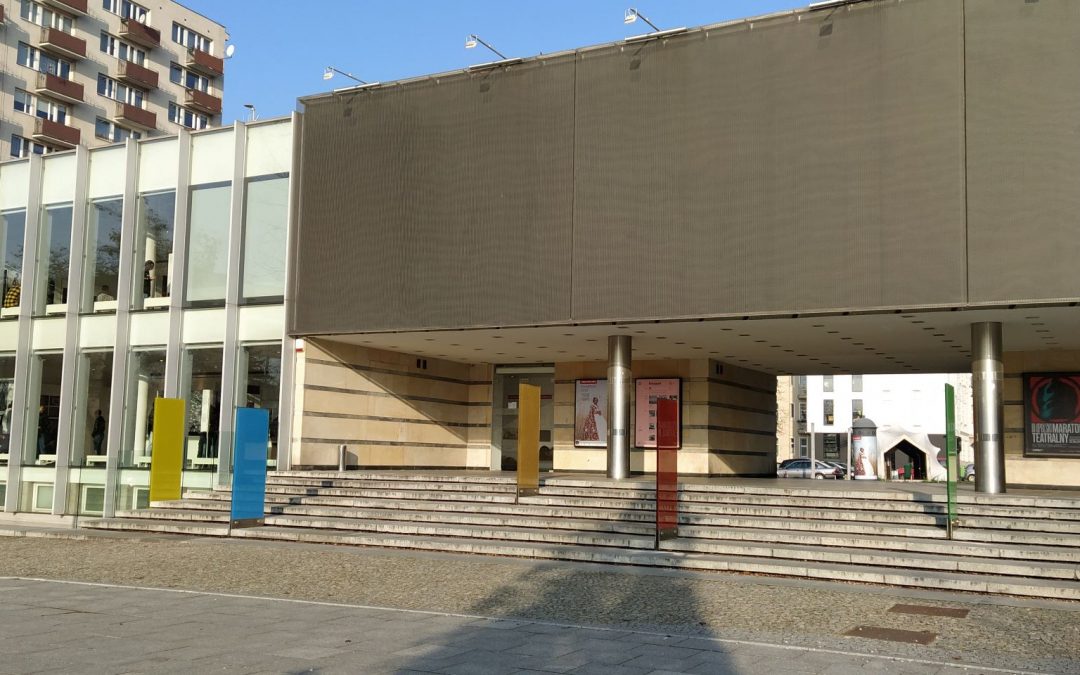
Guided tour – Contemporary Art Gallery in Opole
OPAWSKA SZKOŁA FOTOGRAFIIThe exhibition at the Contemporary Art Gallery in Opole is organized in honor of the 30th anniversary of the Institute of Creative Photography of the Silesian University in Opava. We would like to invite you all to the English guided tour on...
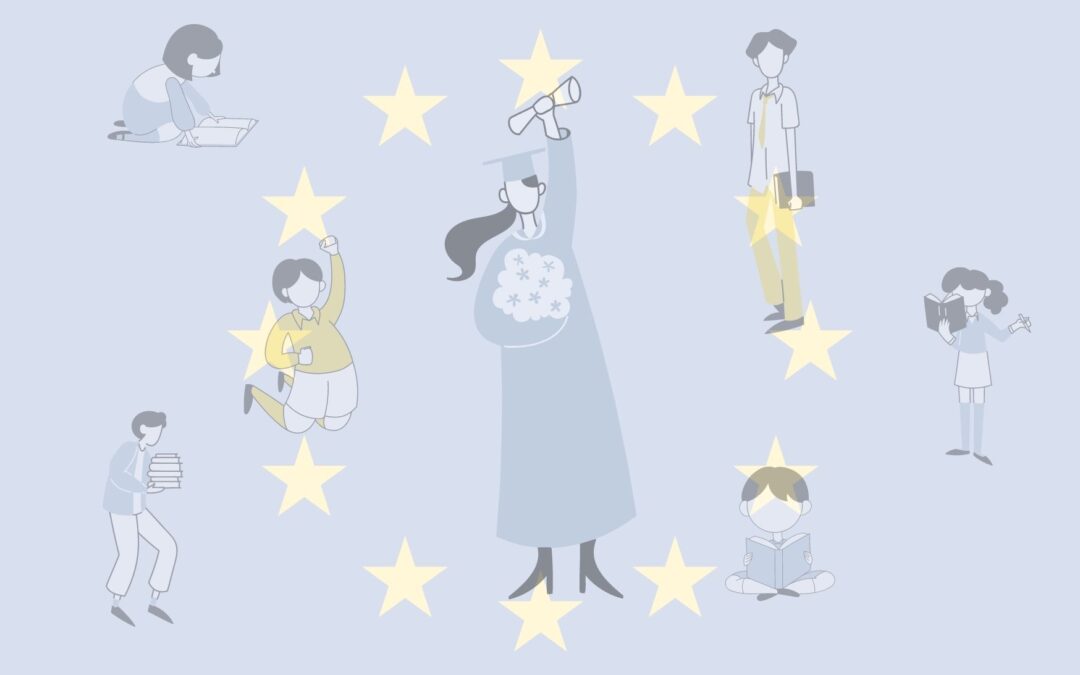
Short-term mobilities within FORTHEM
FORTHEM aims to open up new possibilities for students to travel and study in these different universities. Between 29th of October and 6th of December 2021, students from all of the alliance universities are invited to apply for short-term mobilities! There are two...

Cambridge English Exam
Dear Students! Cambridge English Preparation Centre at the Faculty of Philology UO would like to give you a chance to test your English at three most popular levels B2, C1 and C2 FOR FREE! Cambridge English tests are the objective and prestigious confirmation...
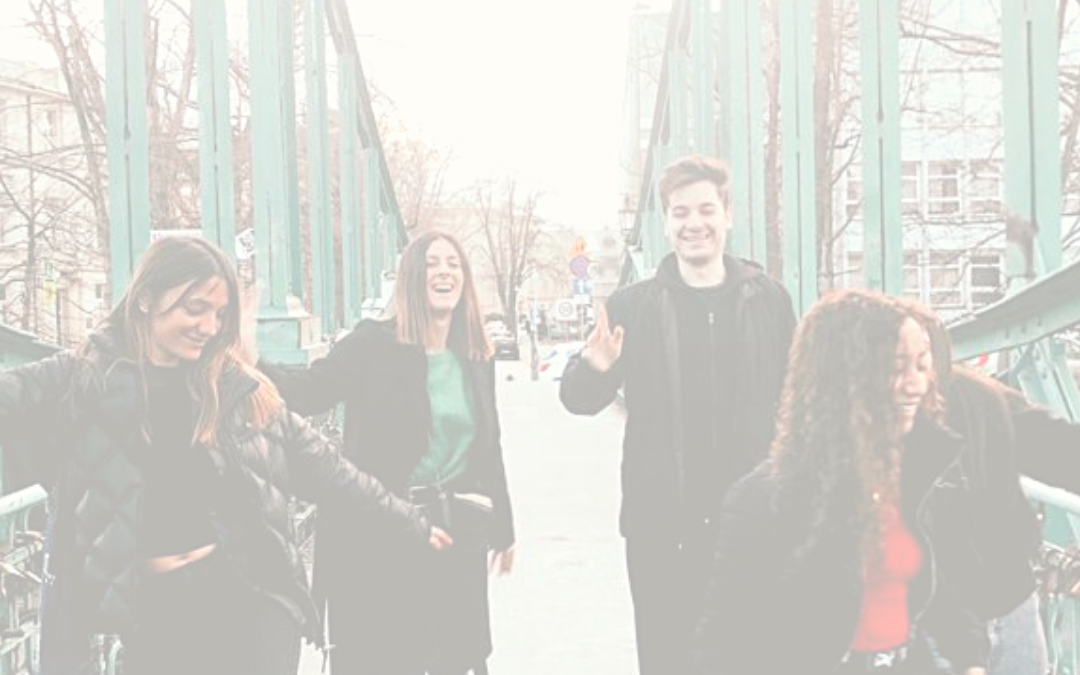
FORTHEM Buddy Programme
Program Buddy jakiego nie znacie! Specjalna oferta dla studentów pierwszego roku! FORTHEM Buddy Programme Program Buddy jakiego jeszcze nie znacie! Chcesz nawiązać kontakt z inny pierwszoroczniakami z takich uczelni jak Uniwersytet Johannesa Gutenberga w...
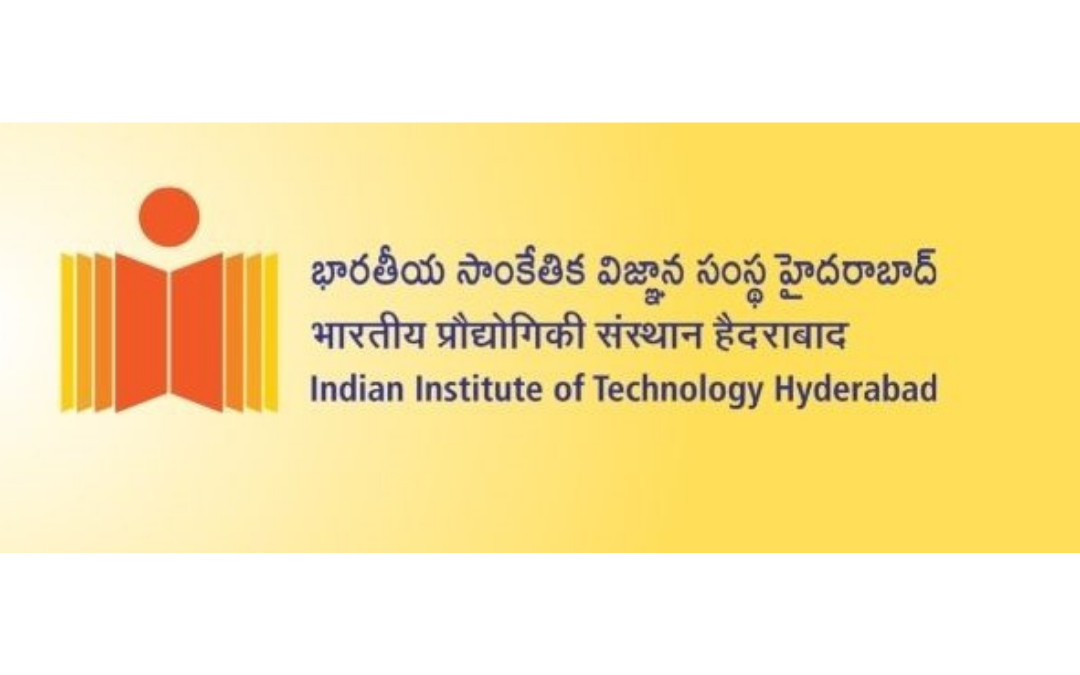
program stypendialny FIRST (IITH)
Indian Institute of Technology Hyderabad (IITH) is one of the eight new IITs established by the Government of India in 2008. In a short span of 12 years, the institute has become a top ranker and currently has 243 full-time faculty, 3,397 students (20% women), and...
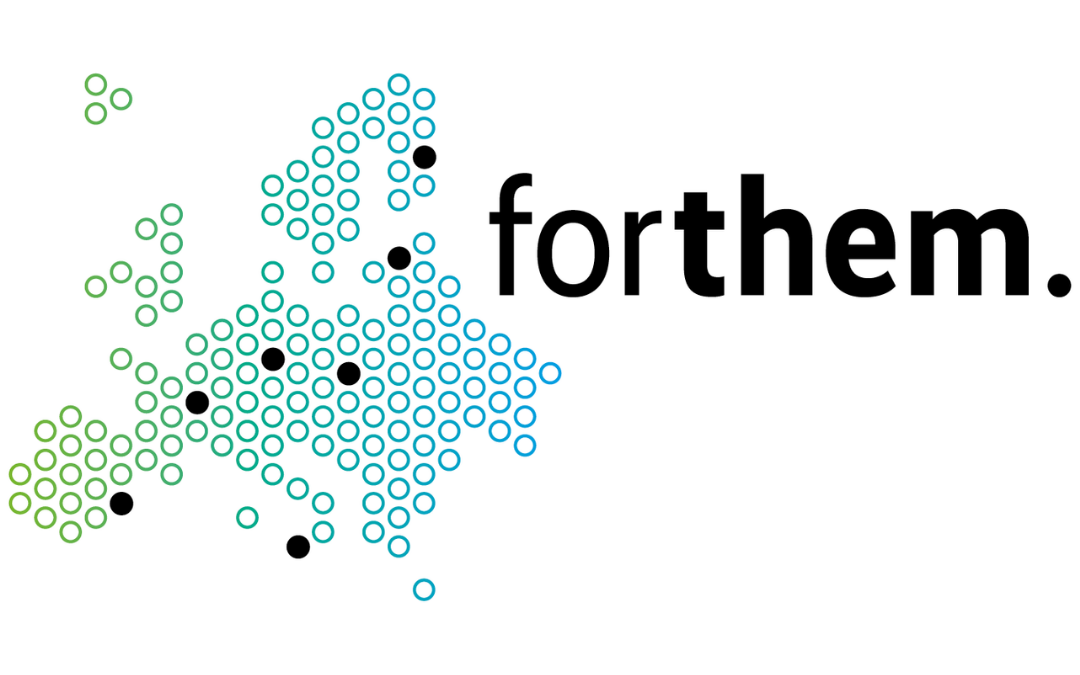
FORTHEM Student
W ramach Sojuszu FORTHEM studenci mają swój głos! Mogą uczestniczyć w procesach decyzyjnych dotyczących pomysłów i inicjatyw dla studentów finansowanych ze środków Sojuszu. Jeśli chcesz: zdobywać międzynarodowe doświadczenie mieć realny wpływ na rozwój...
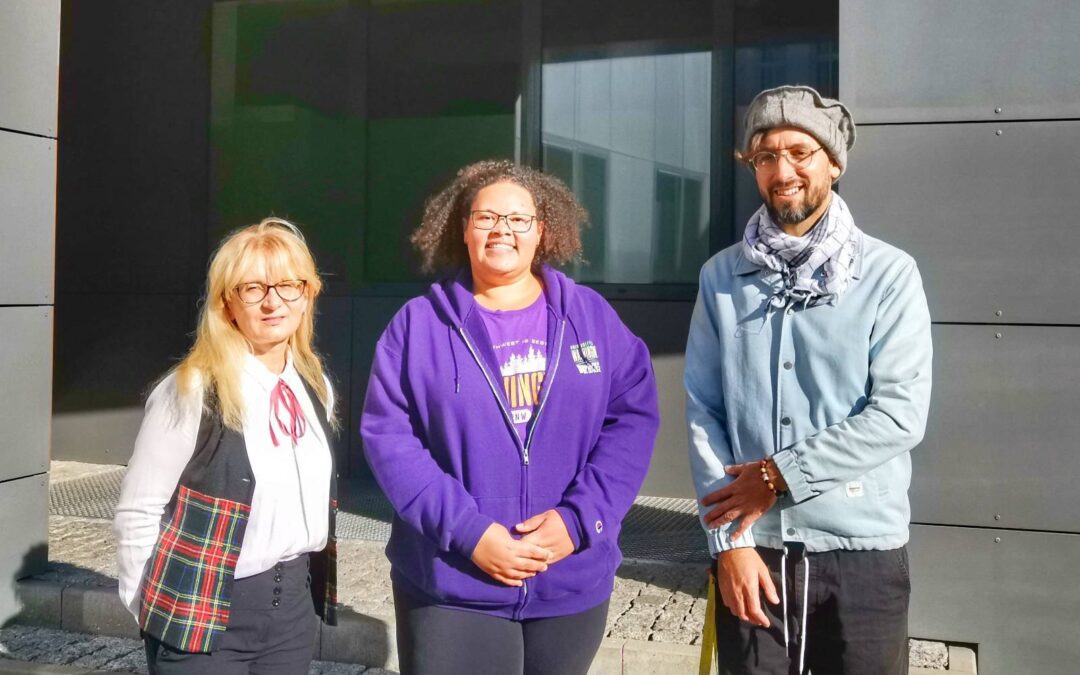
Jasmine – new Fulbright ETA
prof. Ewa Moliszewska, Jasmine, dr. Michal Wanke As the new academic year resumes, the University of Opole hosts another American colleague, who will be helping us out in our classrooms and instructing or co-teaching students in various study programmes. This year,...
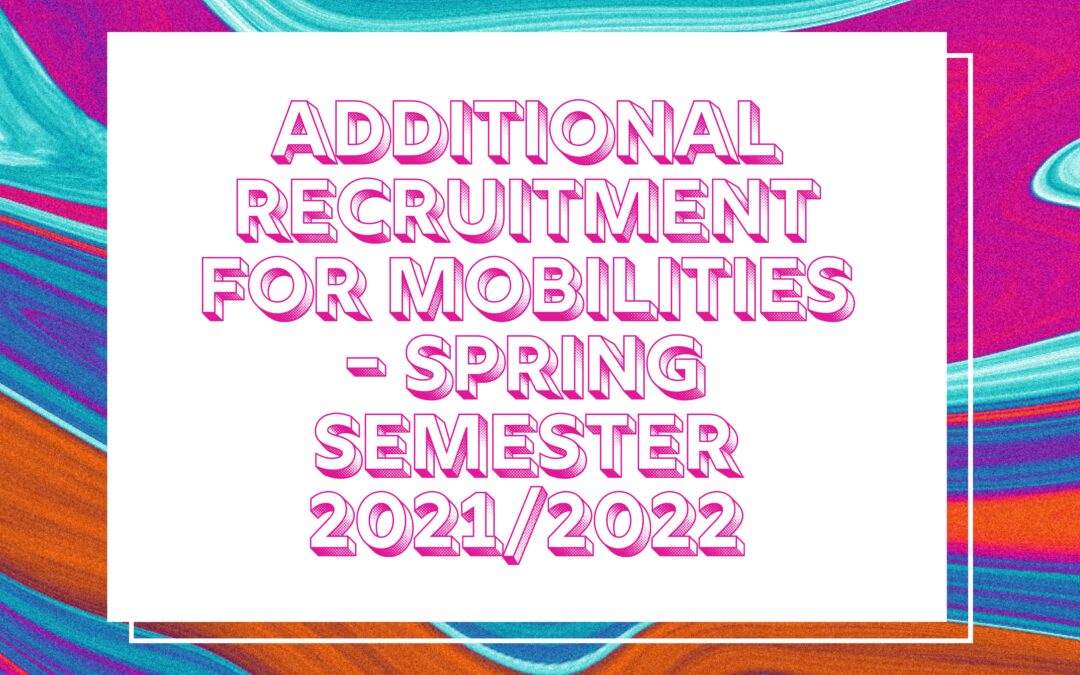
Additional recruitment for mobilities – spring semester 2021/2022
Dear Students, The additonal recruitment for mobilieties for study and traineeship within the framework of the Erasmus + Program during the spring semester of the academic year 2021/2022 starts now. The recruitment will last from 04.10.2021 to 12.10.2021 Every regular...
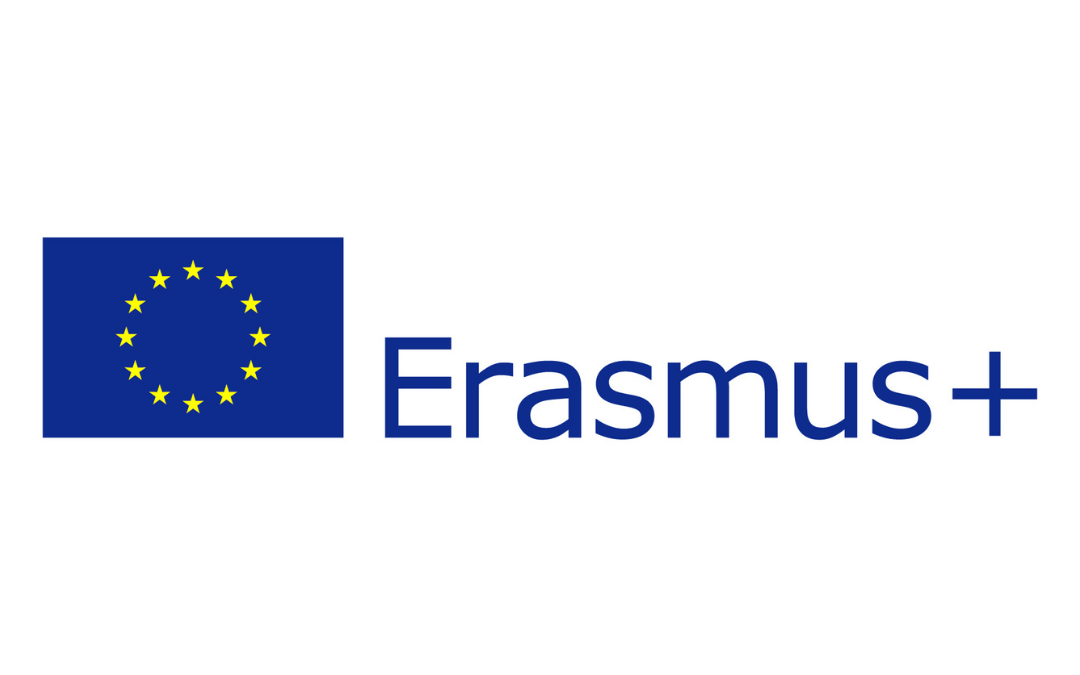
Erasmus+ office closed
On September 9-10 (Thursday and Friday) Erasmus+ Office(and the whole Office for Research and Project Management) will be closed. The Team will take part in the training Project management methodology, creation and communication in project teams, principles of...
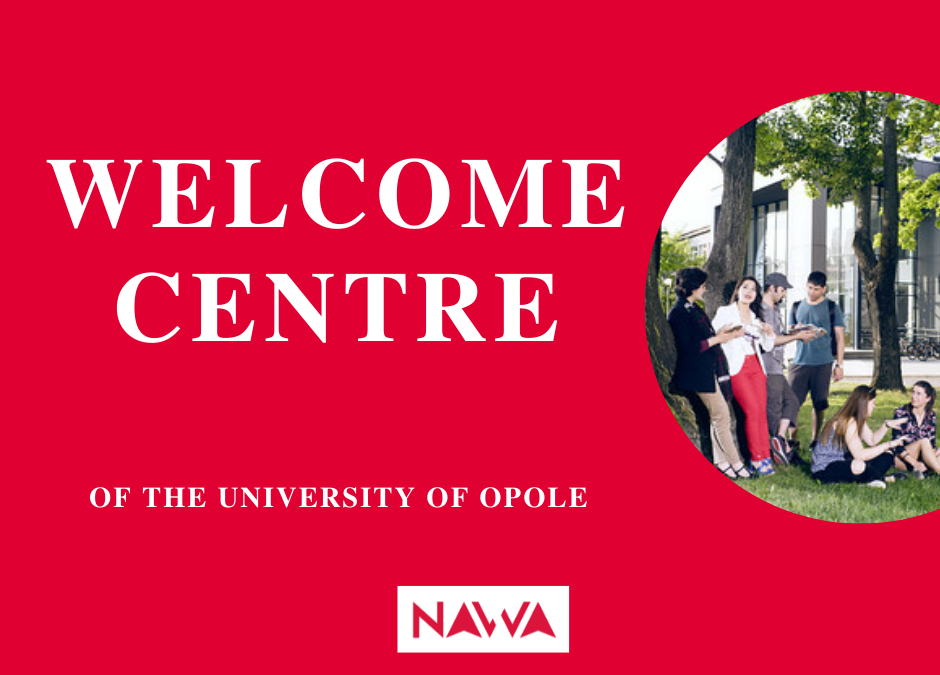
Welcome Centre
Dear Students! We are happy to invite you to the Welcome Centre of the University of Opole, where you can get information and assistance regarding your studies and stay in Poland. The Welcome Centre is operating as a part of the International Students Office. Our...
